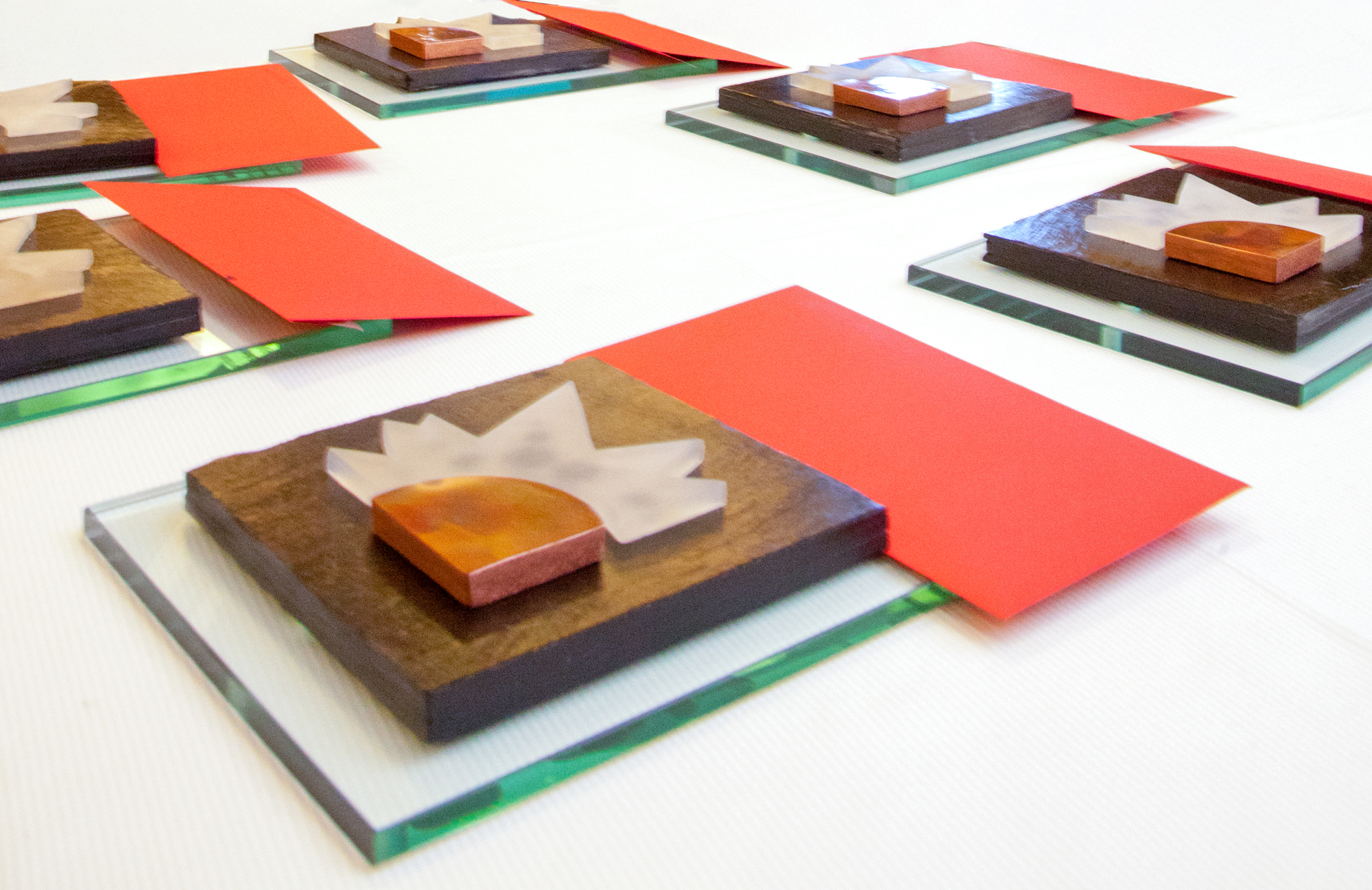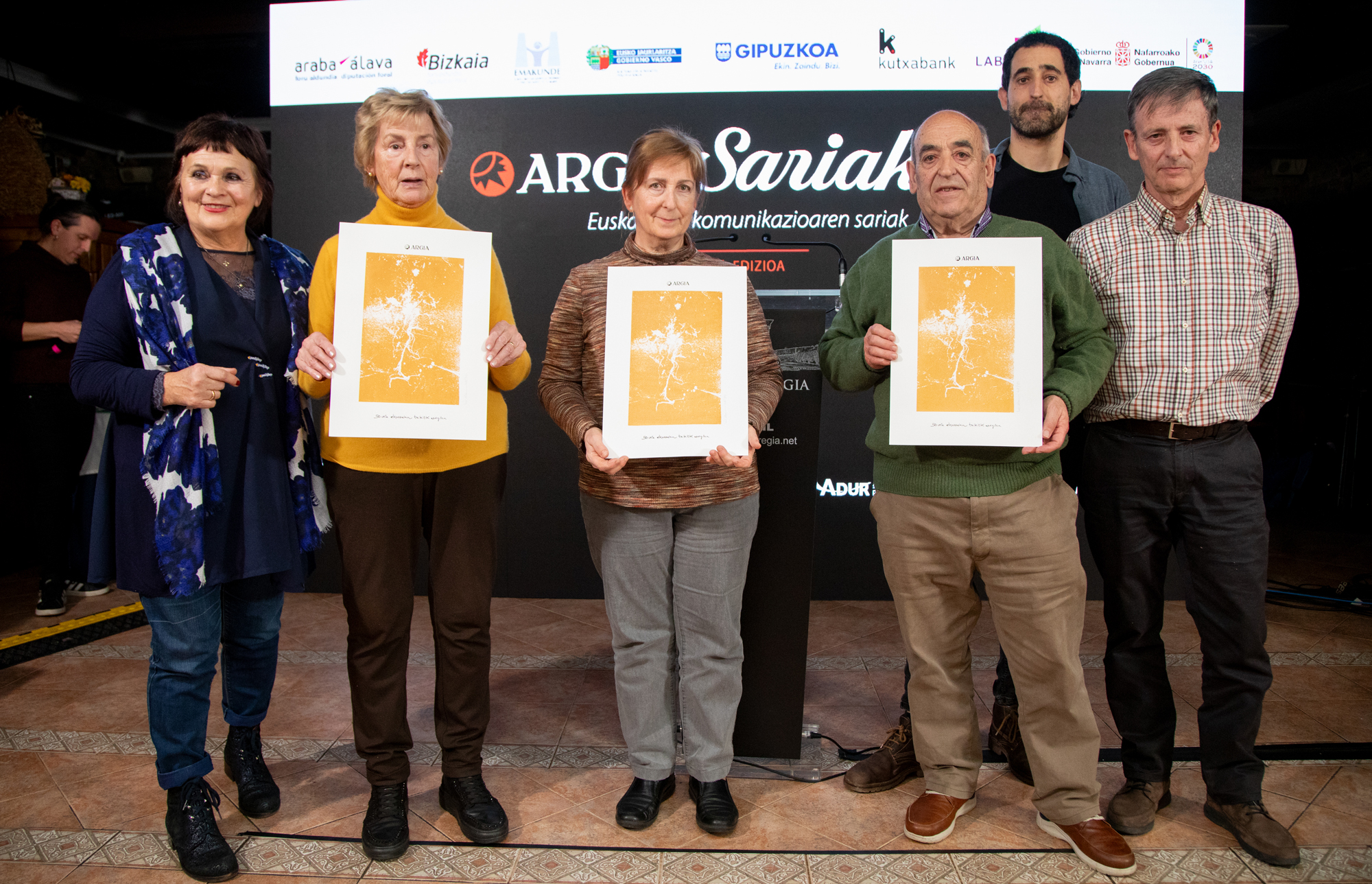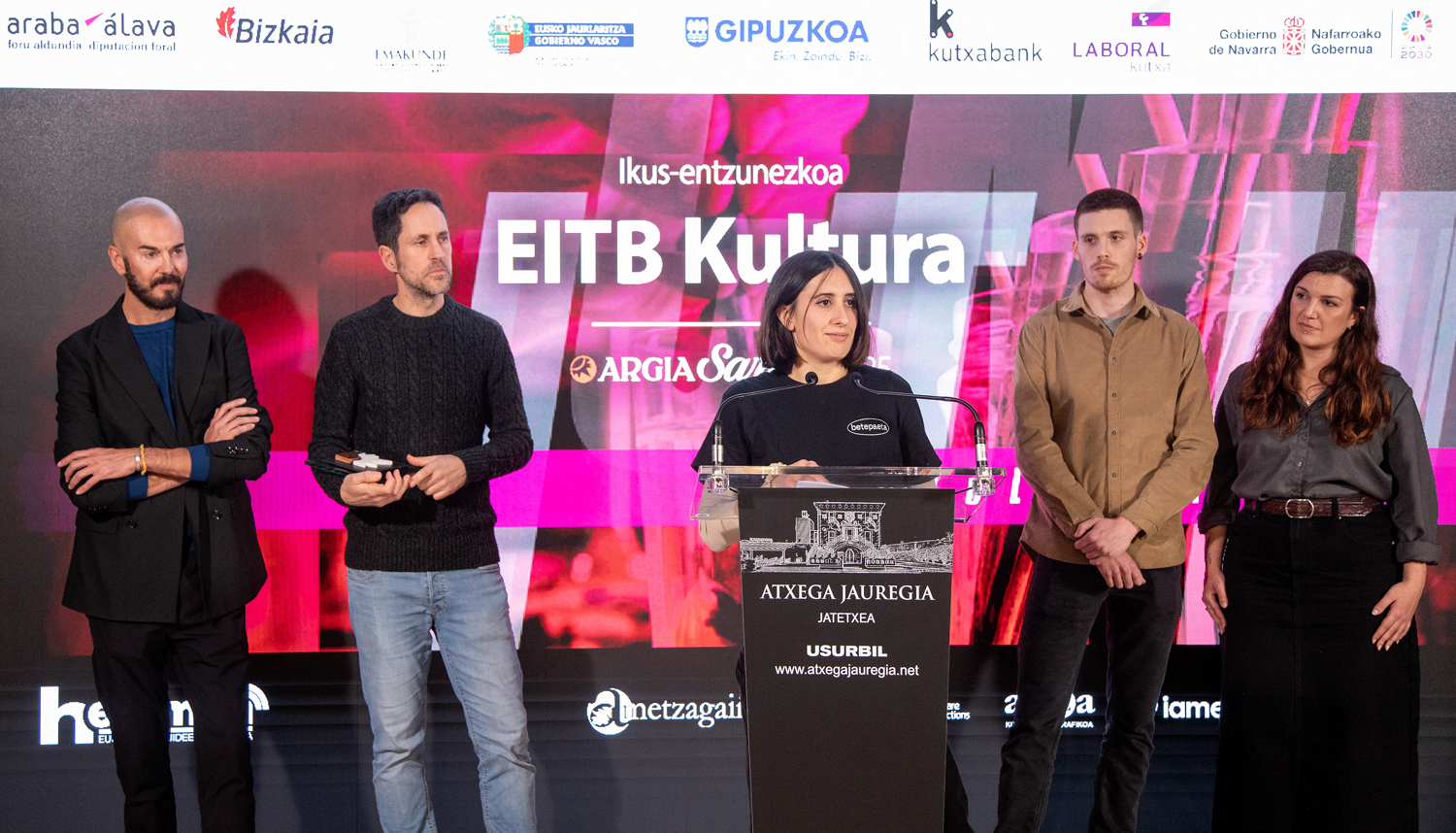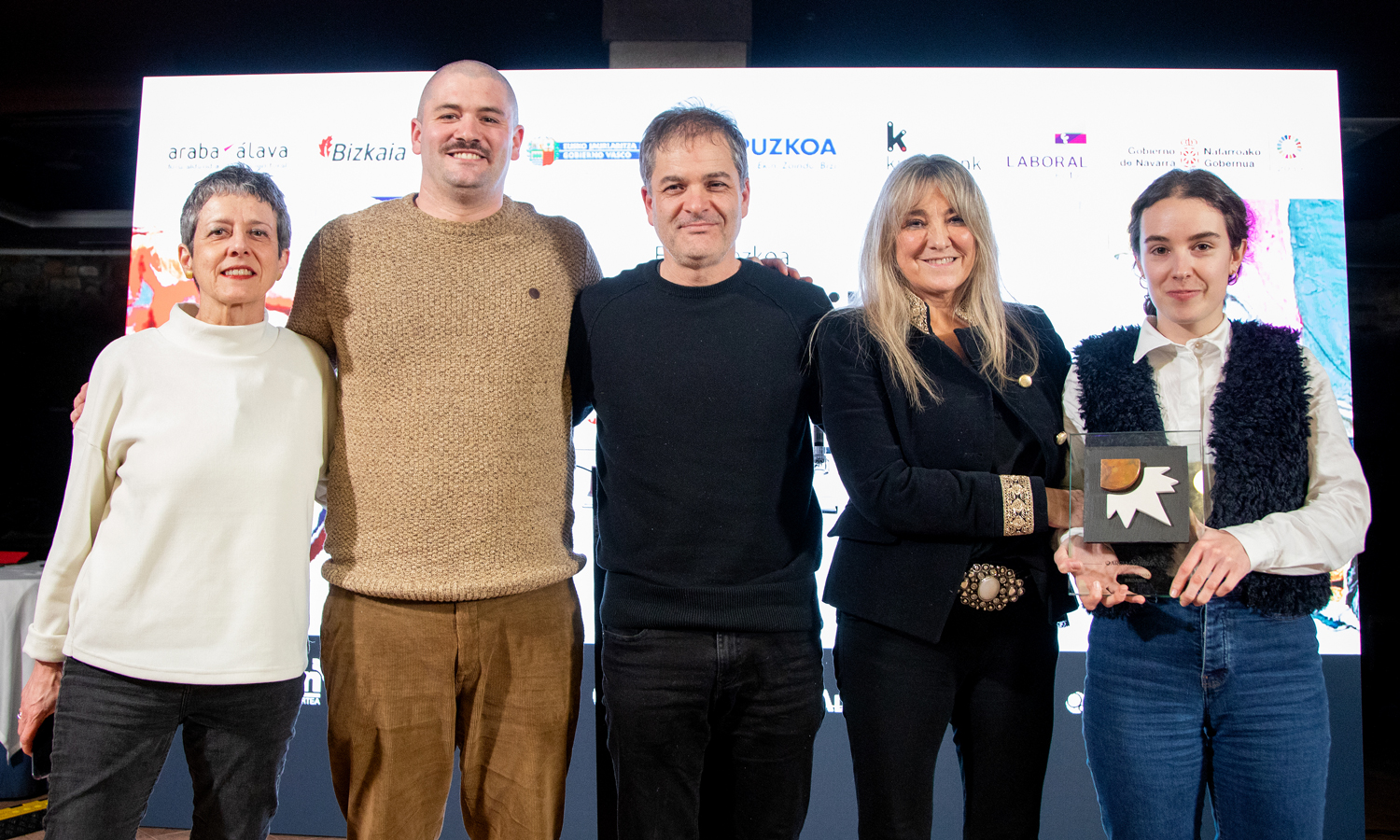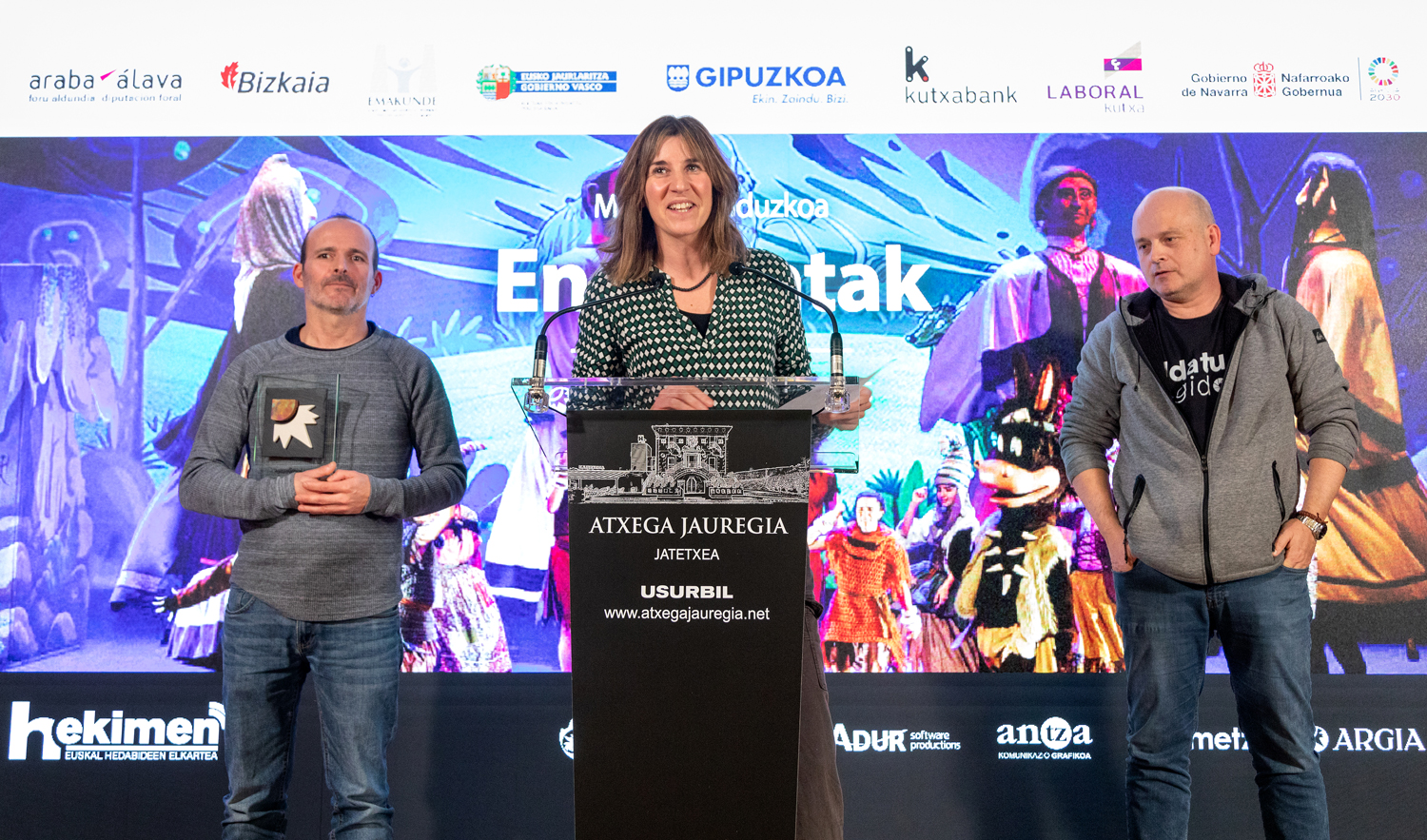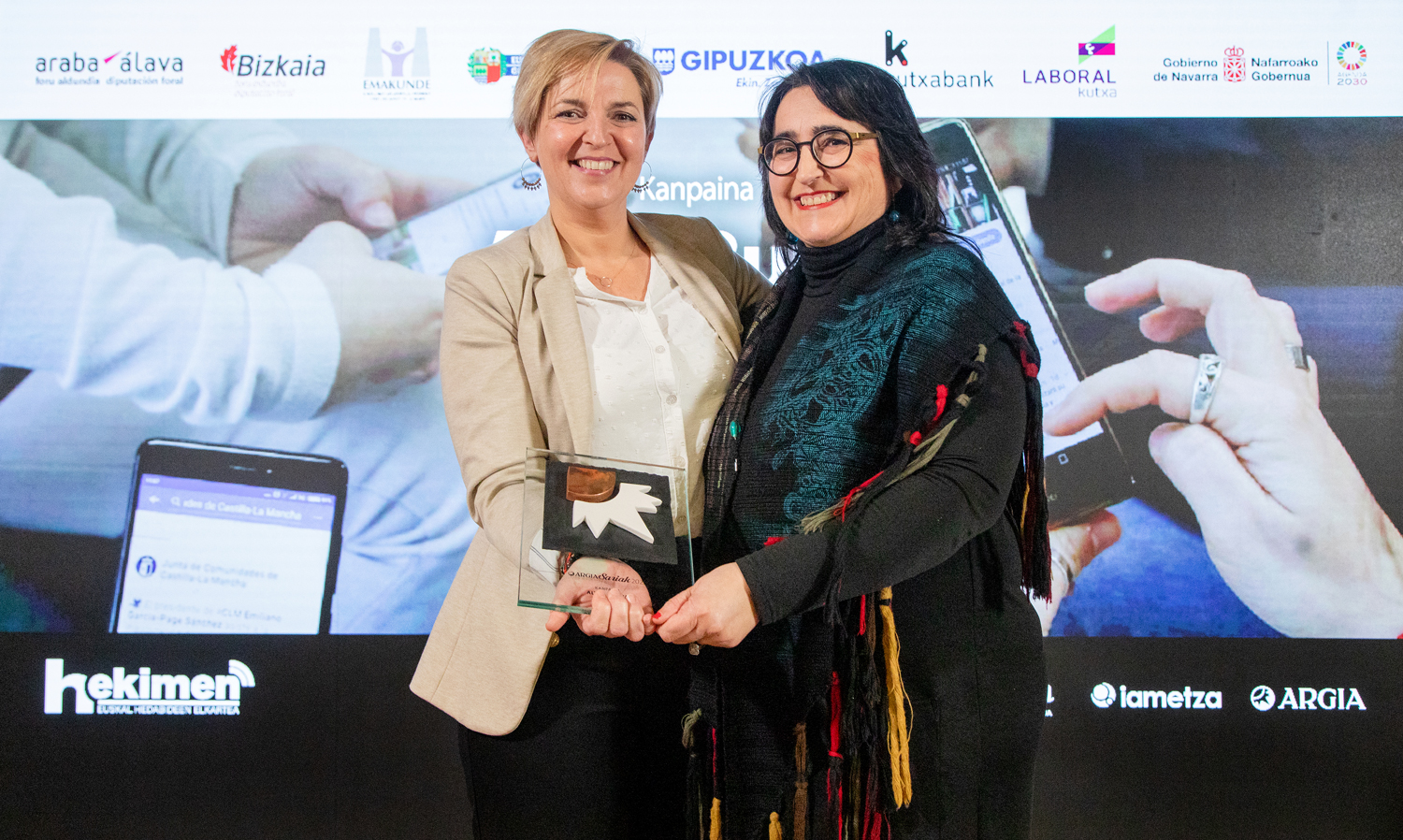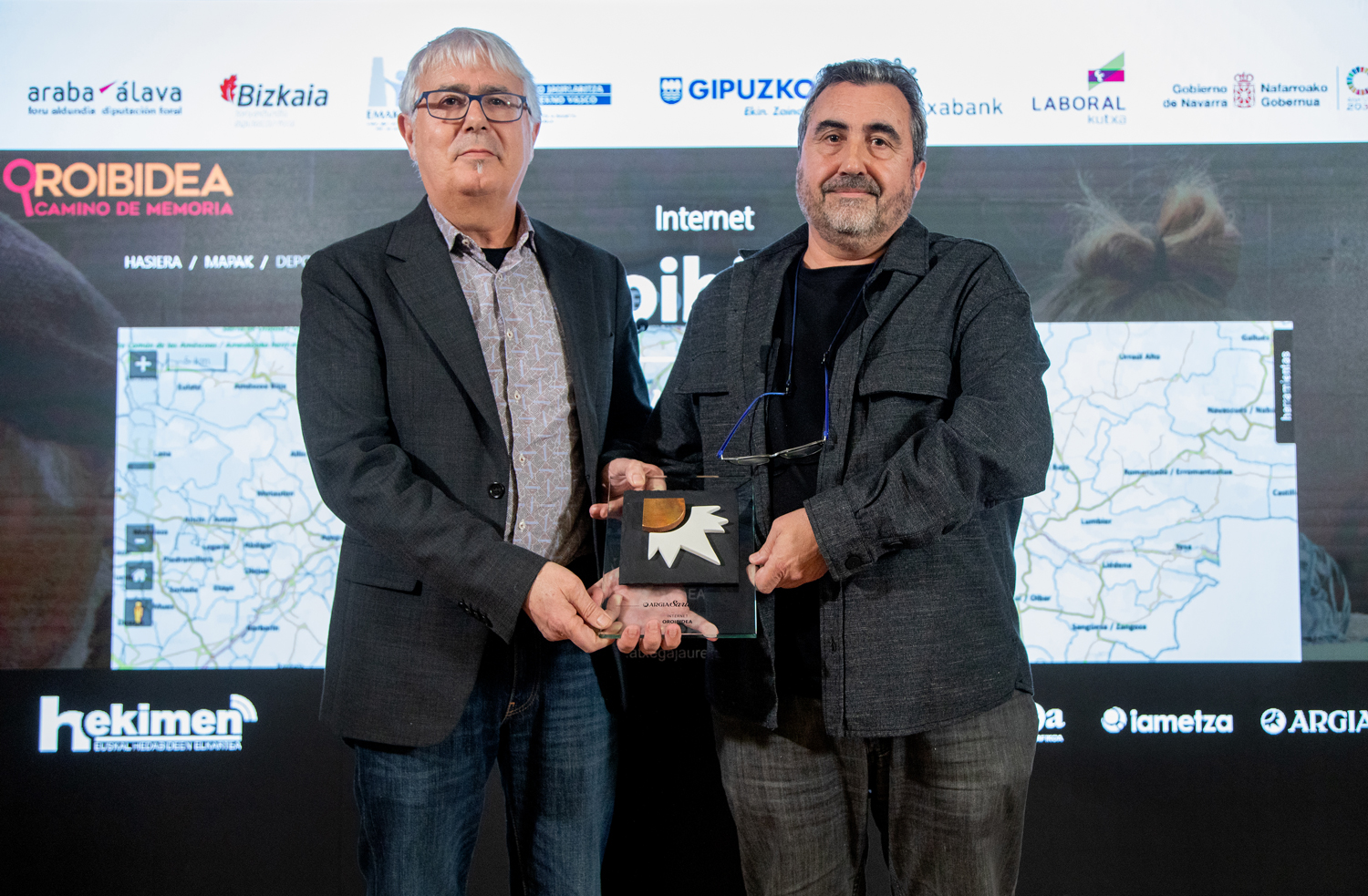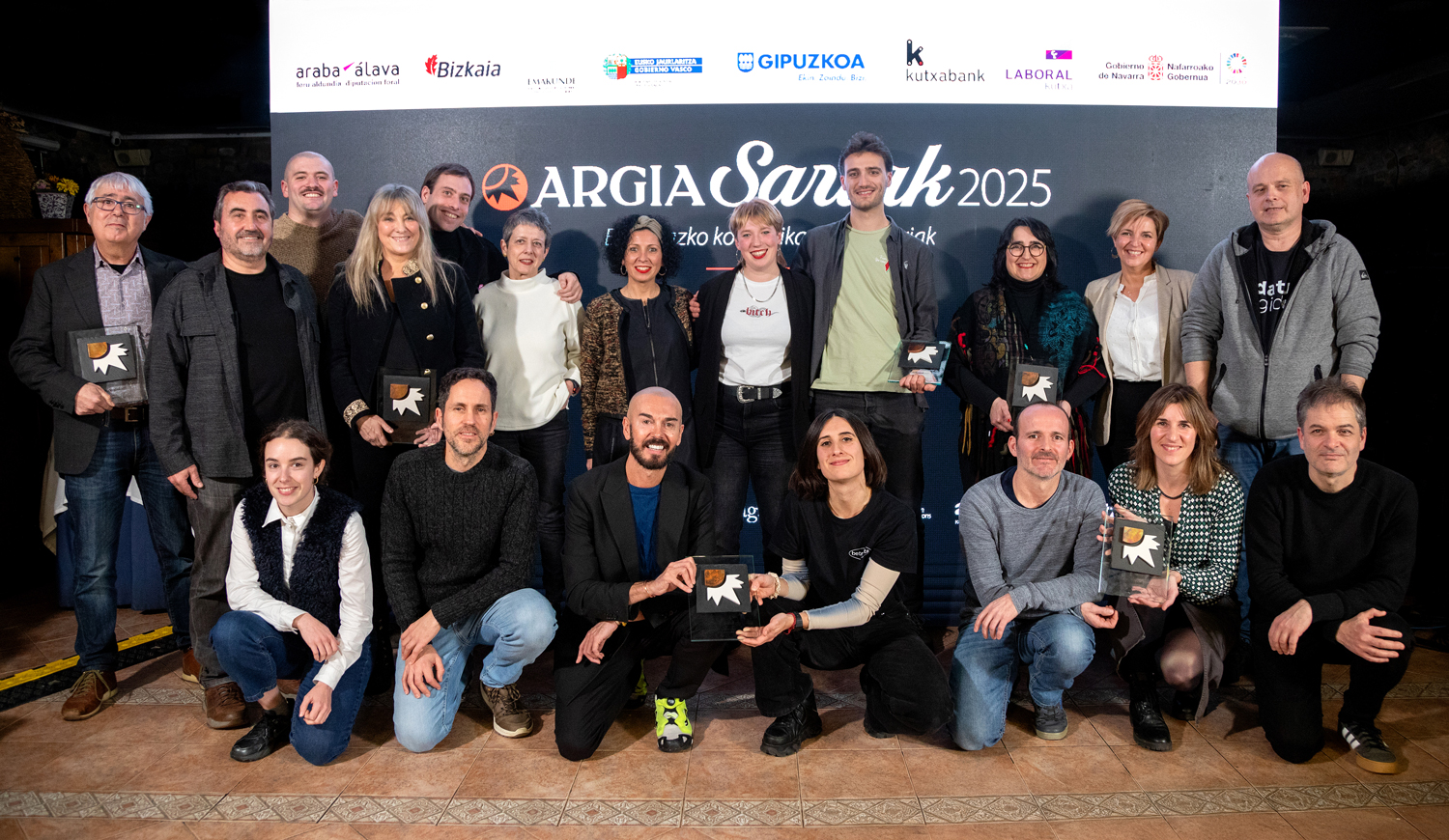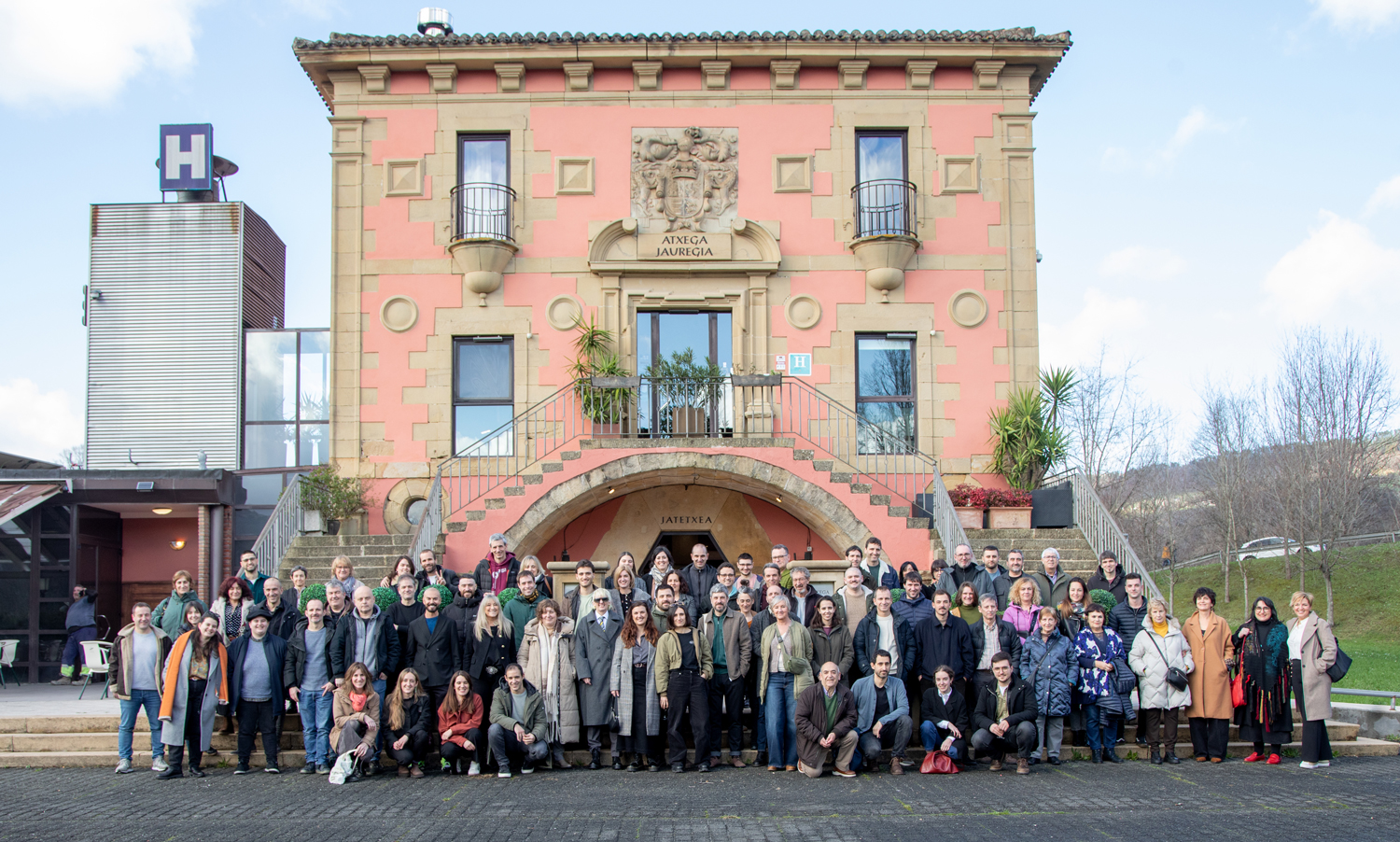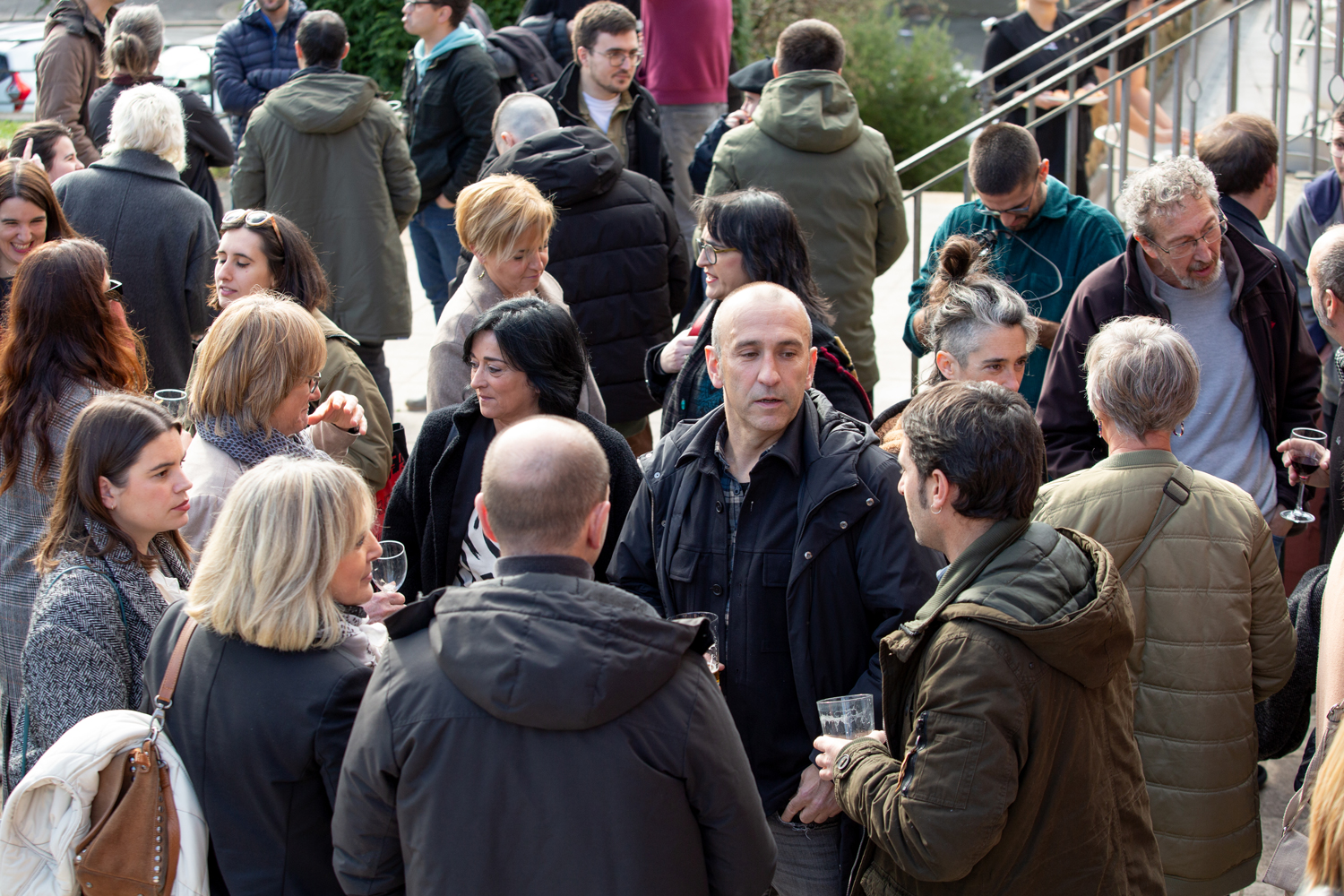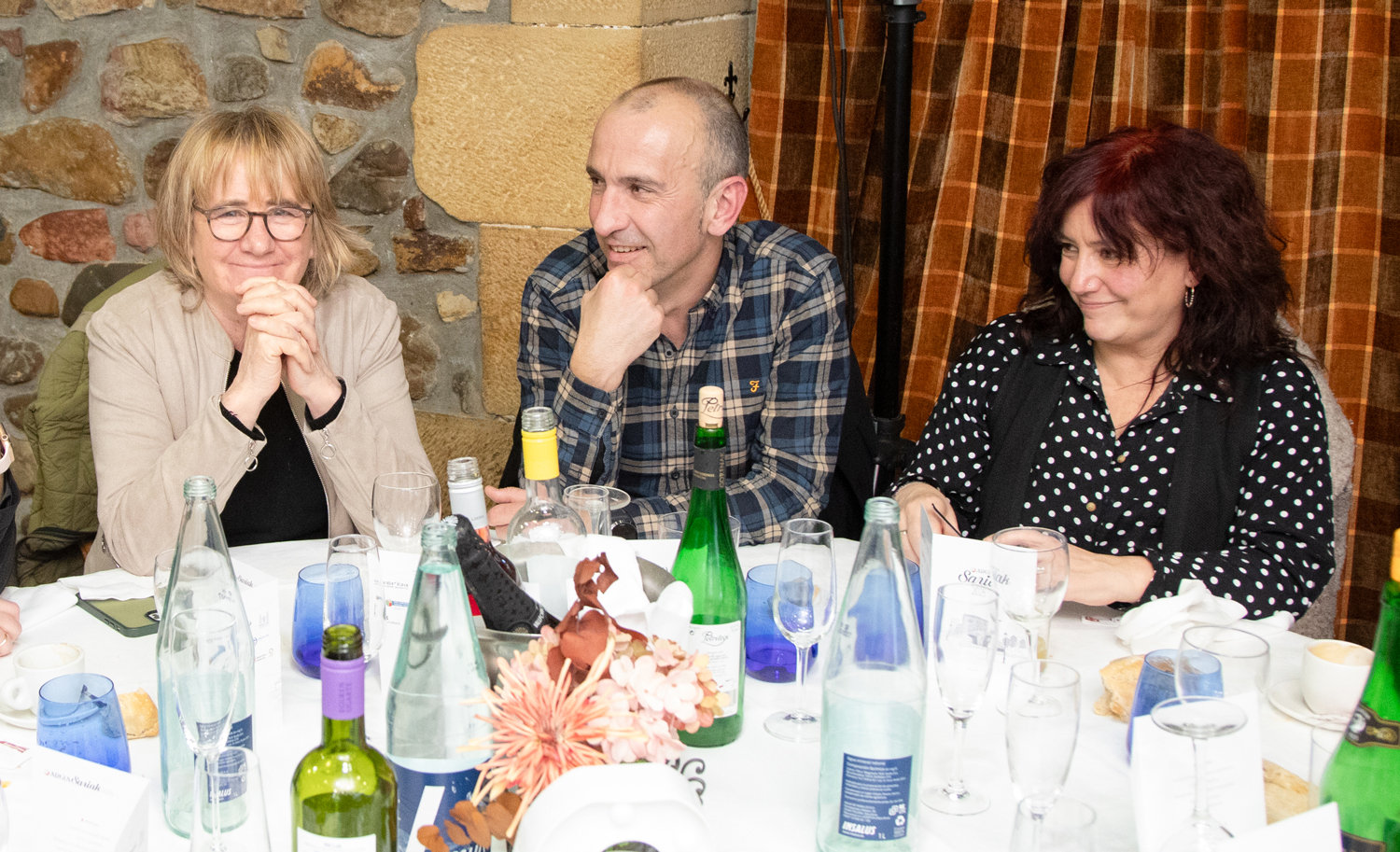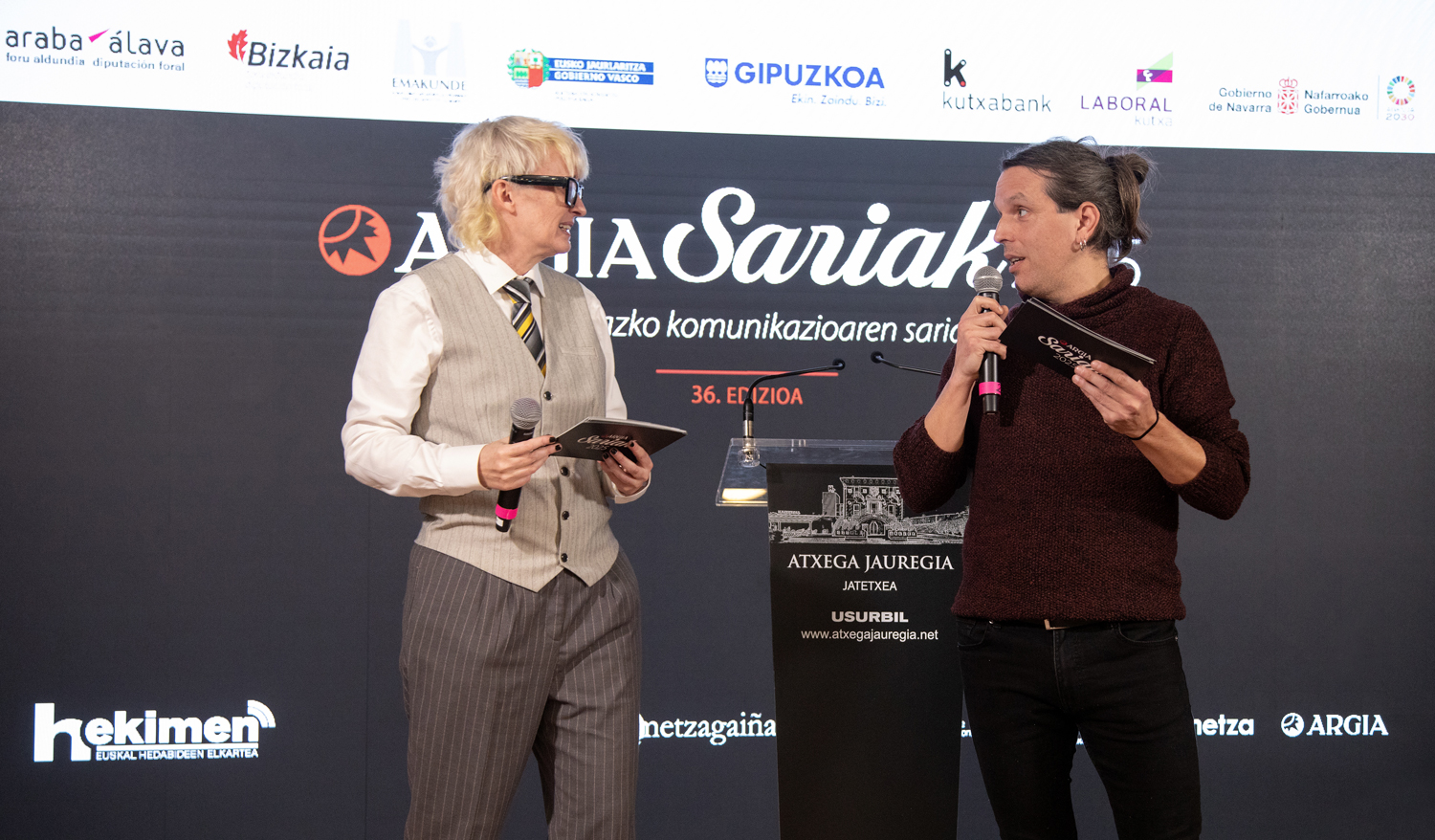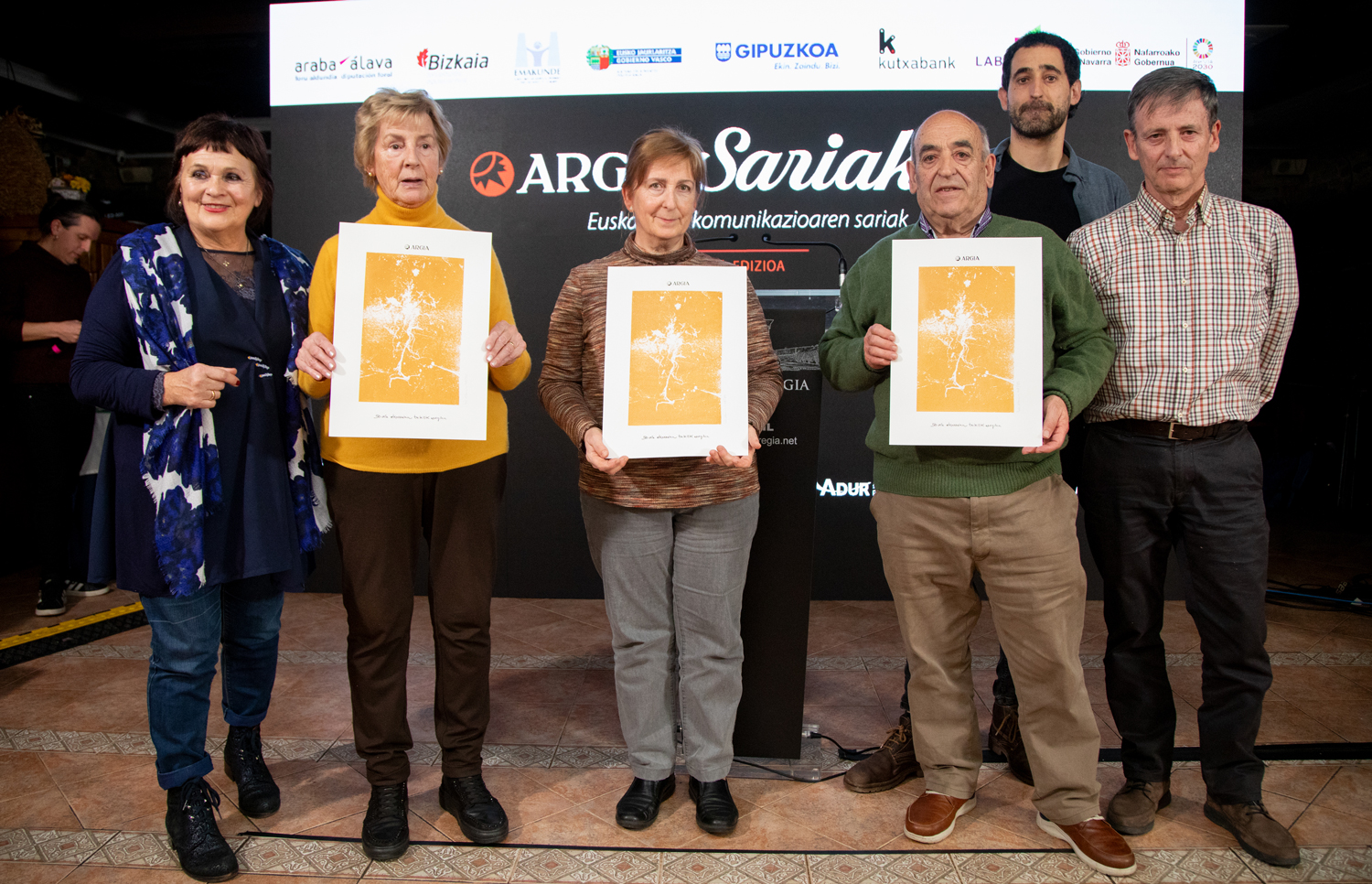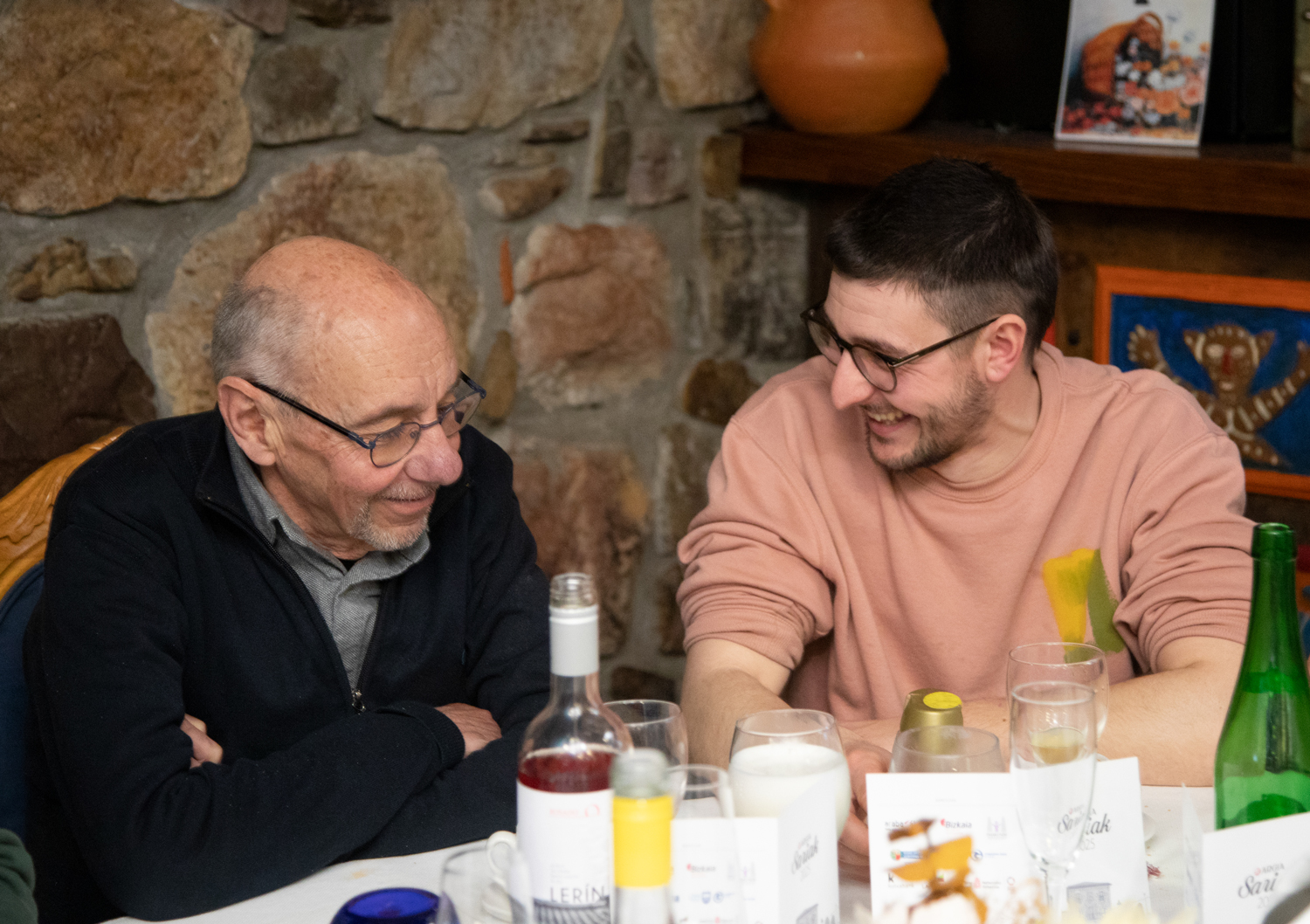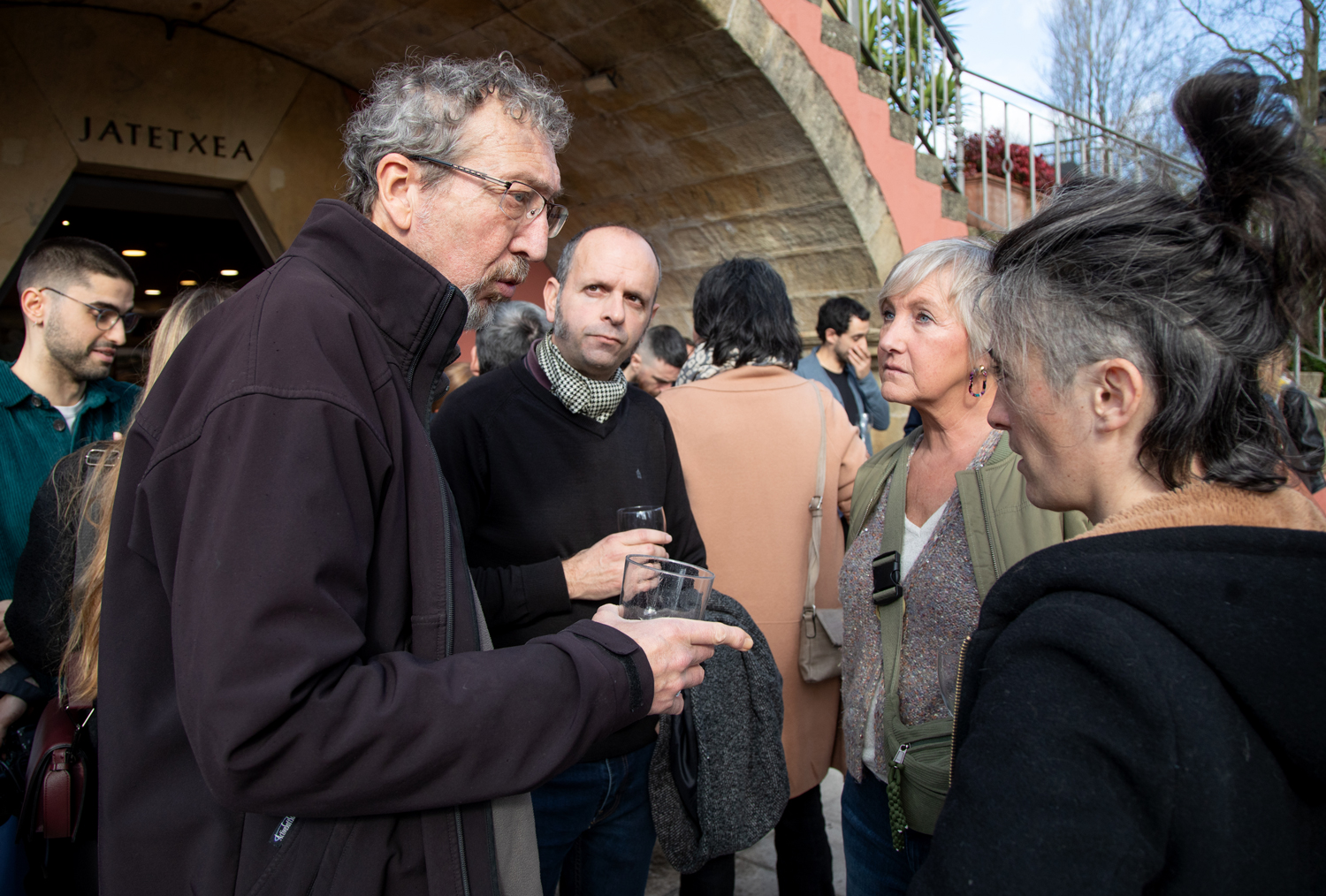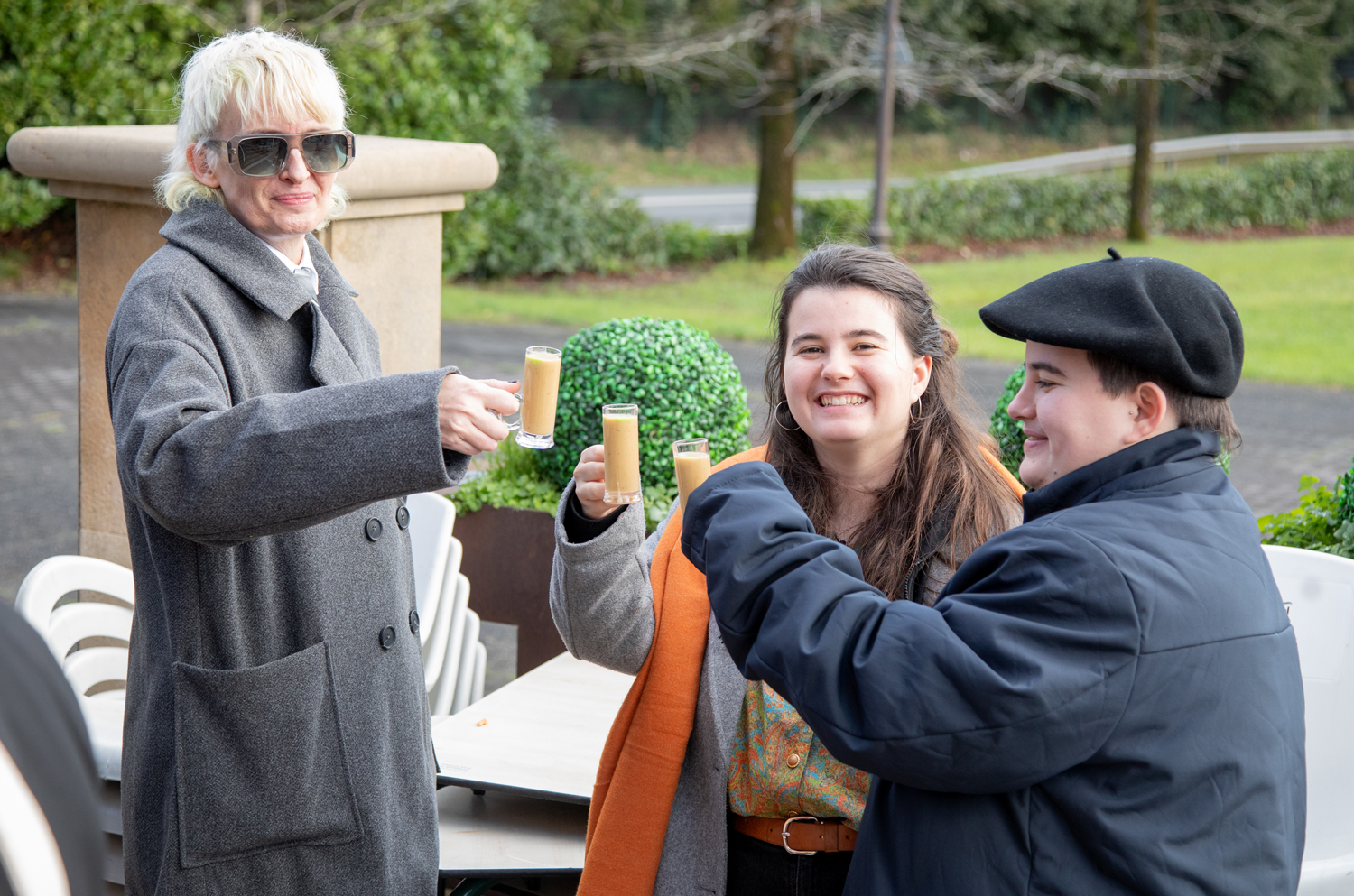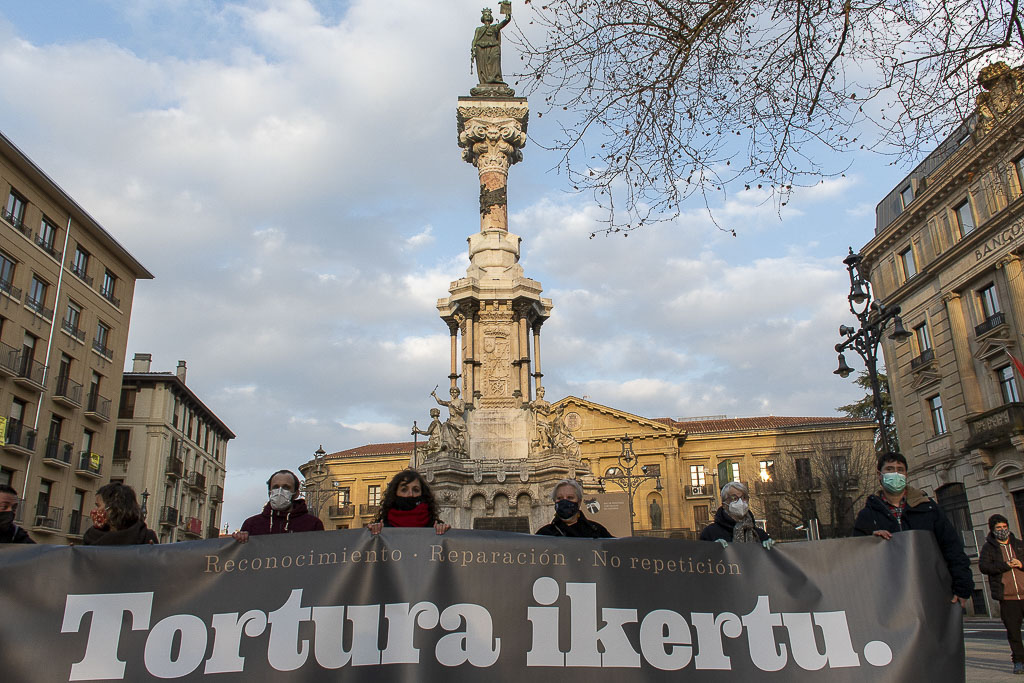"It is a political problem to educate the child in one language or another"
- He has not been in Vitoria-Gasteiz, in the Department of Linguistics and Basque Studies of the UPV/EHU, running the seminar on Education and Linguistic Policy. He begins to talk about schooling in one’s own language and makes a bridge to the situation we are currently living in. Among other things, he has made an appeal to relieve our daily fatigue and sorrow.
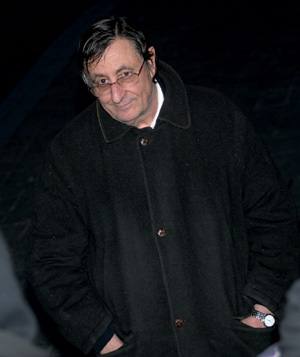
Ignasi Vila Mendiburu (San Sebastián, 1950) is a psychologist and a Vigotsky, who says that languages make us, as the Russian says: “We live only as linguistic beings, and if we are linguistic beings, if we are made of language, it is evident that language – that is, languages – is a very important source of identity.” This is the starting point for the conversation...
Education and Language Policy, the name of the seminar you led. You went to history first...
Reflection, because it has always been one and the same. I mean, why don't people go to school in their own language. That's the key. For comparison, let’s take Comenius, let’s take Vives, the time when education was done through Latin during the Renaissance. Comenius will say that there is no greater stupidity than to teach anyone in a foreign language. This thought has persisted to this day, although it is controversial today. That is to say, it is a thought associated with common sense. Let's take another author so that we can understand well what I mean. I am sure he will be the most important author in history, that is, Unesco. I am not talking about the institution, but about the seminar set up by the UNESCO committee in Paris in 1951 to deal with this issue.
At the end of World War II...
The time was also like this: the world was beginning to decolonize, new countries were being explained here and there, newly created states... and all of them, when it comes to education – and, of course, language – that need to make decisions. The conclusion of the seminar is unequivocal: the most beautiful thing that can happen to the child is to be educated in the language that he knows. Therefore, the schooling of each one in his own language will become a pedagogical encouragement from then on. This hatred will soon be assimilated by minorities who are subdued by the nation states in the 1960s. States, in fact, coerce their own language, not any language, but an official language such as this, a language that provides a possible common, unique and homogeneous national identity. And it is during this period that the creation of the Catalan school, of the schools, or later of other schools such as Wales, Brittany, Occitania or others, will take place, where, in education, the presence of native languages is re-signified, taking into account the pedagogical humour of UNESCO.
You have made a different reading of this pedagogical hatsarre in the Vitoria-Gasteiz seminar.
Yes, the participants in the UNESCO seminar, because the reports that were drafted by this committee are carefully read, and because there is an aspect that is of vital importance. In one’s own language – they use the term “mother tongue” – even though it is said that it is necessary to educate, it is observed that in the world, or in a territory where it has been said, there are many contiguous languages, speakers of different languages. And the formation of an educational system for speakers who use one hundred languages – or, let’s say, two hundred and fifty, in the case of India – is insane. The UNESCO Committee said that it was important to have a national language, a guarantee of the integrity of the State, on which the future should be built by the States and, therefore, because it has been said that education through the mother tongue should be reduced to the first years of school, after which the children can make the transition to that national language. This national language, in their image, will be the language of all people who live under the same State.
And then the pedagogical encouragement that he says to teach in his mother tongue?
Historically – and although many people have teman and instinctively defended it this way, linguistic minorities, above all – the pedagogical zeal that says to teach in the mother tongue – “Established by UNESCO!”, they would have said, believing that this meant something – we read the report carefully and are aware that UNESCO does not say this: it refers to the transition, to the need to move from one mother tongue to another. Its purpose is the national language. Today, despite all the pedagogical, psychological, linguistic and other controversies, the experts agree that it is not a question of the mother tongue, but of the language in which the child should be taught. Moreover, there is no impossibility of schooling the child in a second language, as it is known that this will not cause any loss: schooling the child in one language or another is, above all, a political problem. Therefore, this linguistic issue must be framed in the political sphere and acted upon there. This is preferable, and there is no constant recourse to pedagogy, psychology and linguistics.
And these sciences...
Hey, wait a minute. There is no denying that psychopedagogy, for example, will not help us to make curious observations about the educational treatment of languages. It's over, then! In fact, the first thing to discuss when we talk about schooling in a particular language will be whether or not the scholar feels a part of that language. It would be good to know, at least. Languages are part of the speaking communities. There is no abstract language. They are tools, tools, they cohesion the relationship between people within the community. Therefore, the community of Spanish speakers is not the same as the community of Basque speakers. Among other things, because the Spanish-speaking community has 300 million people, a lot of variants, hundreds of cultural and institutional structures, institutional supports of all kinds, etc. The Basque community, on the other hand, has a limited territory, a limited number of speakers – and they also coexist with other languages – if it has institutional support, yes, but the situation, instead of equality, is clearly different. However, Spanish, Basque – and French and others – are not signs of identity of the linguistic communities they speak. In other words, Spanish is as identical as Basque.
The Spanish speaker doesn’t feel that way...
Even though Spanish is a universal language, used by 300 million speakers, it is as identical as Basque, to the same extent they are identical. This means that the Spanish-speaking speaker from Guadalajara, Mexico, and/or Fuentealbilla, Albacete, Spain, has no uncertainty about the future. He knows that his grandchildren will be able to choose freely and that they will be Mexican, Spanish or whatever, calmly. The problem with the Basque community, on the other hand, is that they don’t know for sure if they will have a chance like their grandchildren. That is to say, I do not mean that these grandchildren must necessarily be Basque, rather than have the opportunity to choose freely. And if you can freely choose to be Basque, whether you are or not, it is imperative that Basque survives. And so this is what we are talking about when we look at education and language policy in education. In other words, to what extent should we use a language policy in education that ensures the survival of such a language? He is defending the rights of the community of that language - and, in order to survive, the cultural belonging that he has freely chosen - he is working so that his grandchildren can also have it. It’s not that Basque is the language of the Basque Country – or Catalan is the language of the Catalan Countries – no. The fact is that those who consider Basque as their own language – and also those who consider Catalan as their own language – have the same linguistic rights as those who consider Spanish as their own language. That's the key. Of course, if Basque survives anywhere, it will survive in the Basque Country. And, in the same way, Catalans in Catalan Countries. When we talk about linguistic policy on minority languages, we are not simply saying that some people have Basque as their own language. In addition to this, we are proclaiming a new separation of powers from education. When it comes to languages, the speakers of that language must have the cultural certainty that their heirs will actually have a context of free choice. Just like the person whose native language is Spanish, to the same extent.
Is this new division of powers that you have mentioned possible?
Of course what's possible! Just like when we decided in Catalonia! We preferred a model, a single language, Behicular, Catalan. This is the only way for people with Catalan as their own language to have the hope that their language will survive, that all of them will know Catalan; it is simply whether they will use it or not. There are many people who know Catalan, but – for whatever reason – who do not speak Catalan but use Spanish, either as a family or as a friend. In any case, if we live in Catalonia, this knowledge of Catalan means that when I speak Catalan to anyone, my interlocutor will have to understand me and respond accordingly.
What happens when the child has to learn a second language at school, when the school age ends and he/she is unable to speak it?
This is not true, but lies, lies. And, I have evidence for that. Fortunately, that is where the evaluations that the institutions carry out are. The culture of evaluation is relatively new to us, but at least it is introduced. Since the 1990s, organizations have been evaluating it. And whether it’s the European institutions, whether it’s the state or the communities, they prove that what you say is a lie. For example, the evidence indicates that the Catalan system of Madrid –or Andalucía– promotes the same knowledge of the Spanish that it promotes. What’s more, it promotes knowledge equivalent to that of Catalan in Spanish. In the UAE, the same. And/or that, for the maturing of cabbages, the Spanish knowledge of the students of your community is, in part, greater than that of some monolingual countries of the state. Knowledge of Basque is equivalent to that of Spanish. Today, in the UAE – and in the Basque Country – say the words, the child schooled in model D knows Basque when the school age ends.
Do you know that?
I told you, you know. Another question is whether he has the level of knowledge of Catalan or Basque that we would like him to have when he leaves school. That's something else. Because the language has infinite records, the language is not one and only. It varies depending on the situation, the place, the interlocutor... I, myself, am speaking to you here in a certain way right now. I’m talking to you, yes, but I think of the readers, those interlocutors who won’t see me, who will read me. This forces me to speak in a certain way so that what I am saying is given a form. If we were to argue about whether the Royals – because I’m a Real fan – will make the second round the size of the first, and whether they will be able to qualify for UEFA if they try a little... well, I would use a completely different record. What do we have here? That the school uses a type of record, the language record of the teaching-learning actions. The school does not teach girls or boys how to do it in Basque, it does not teach Basque how to do it, it does not teach how to play and play in Basque... In the school, the language associated with academic work is taught, that is, a certain register. And that’s the Basque they learn after studying in model D, not another. It is known that the Basque child model D has not only school records but also family and other records, but also that the Basque child model D does not have them. However, this record she has received at school is so strong that the 11-year-old girl – or the 15-year-old boy – can only spend three months in summer in one of these villages in Goierri, or in Leitza – because the language of social relations is Basque in these villages – mingle with the young and adolescent locals to add to this record she has received at school several other records... Thus, the work of the school is mandatory, basic: it guarantees the knowledge of this language to children who have no contact with Basque at home or with friends. And based on this knowledge, when they encounter other records, they will have no difficulty at all.
Haurrek euskaraz ikasten dute, baina gaztelaniaz komunikatzen dira, ez direlako hizkuntzaren aldeko militanteak. Hizkuntzaren bidez bizi dira, eroso bizi ere, haientzat gizarte harremana delako pertinentea, huraxe garapen iturria. Horrek ez du erakusten gizarte mailan euskarak bizi duen egoera eskasa besterik. Hor dago koska, horrek kezkatzen nau ni. Hortik eratortzen den galdera ez da asmatzen zaila: zein hizkuntza politika gauzatu behar dira euskararen gizarte egoera eskasa –eta katalanarena, nahiz eta diferentea izan–, euskararen biziraupena, ziurtatzeko. Aitaren edo amaren larridura ez da “Zer gertatuko zaie nire seme-alabei?”, ez bada “Zein hizkuntzatan hitz egingo dute?”. Larritasun linguistikoa da, “hizkuntzen mina”, Katalunian esan ohi dugunez, Jesus Tusonen liburu ezagunaren titulutik. Hizkuntzen mina: “Nirea den hori, haren bidez naizen hau… geroan ere izango den bermerik ez dut… Gure seme-alabak –euskaraz, edo katalanez eskolatu arren–, erosoago bizi dira gaztelaniaz, eta ez euskaraz, ez katalanez”. Larritasun identitarioa da, komunitarioa.
Murgiltze sistema baliatzeak argudio politikoak ditu, lehenik eta behin. Ondoren datoz psikologiaren arrazoiak. Politikak erabaki du murgiltzea. Psikologiak esango du ez dela berdin katalan hiztuna katalanez eskolatzea, edota gaztelania, errumaniera, edo arabiera hitz egiten duena. Psikologiaren lana izango da, haur guztiak katalanez eskolatuta egonagatik ere, haien eboluzioa begiratzea, eskola arrakasta izan dezaten. Ez da berdin katalanez irakastea katalan hiztunari, gaztelania hiztunari, edo kroazieraz hitz egiten duenari. Hor bai, psikologia, pedagogia eta beste sartuko dira tartean, baina, aukera, betiere, politikoa da.
Badut lagun bat, herri bateko hizkuntza zerbitzuetako buru dena. Eguna joan, eguna etorri, bateko tabernan besteko jatetxean, hau itzultzen, hura egokitzen, borrokan, katalana bateko menuetan eta besteko iragarkian ager dadin. “Nahiago nuke Badajozen (Espainia) sortu izan banintz, ez nuke eguna borrokan eman beharrik izango!”. Berdintsu dio Jose Maria Nadalek, Pep Nadalek: “Beharbada, oker ari gara. Beharbada, hobe genuke, kultur larritasun hau etengabe sufritzen ibili beharrean, dena pikutara bidali, ahaztu, datorrena datorrela egin, eta kito!”. Kafe osteko elkarrizketan sarri ageri dira horrelakoak, nekatuta gaudenean kanporatzen ditugu, edo egurra eman digutenean. Nik Will Kymlicka ekarriko nuke akordura. Ciudadanía multicultural liburuan dio ez duela ezagutzen kultur identitate bat, edo hizkuntzazkoa, mundutik desagertu denik, hizkuntza gutxituek nozitu dituzten zapalkuntza urte ondraduak gorabehera. Hizkuntza ezberdin bat hitz egiten zuten komunitateei egin zaizkien piztikeria guztiak egin arren –hizkuntza homogeneo eta kohesionatzaile baten izenean beti, jakina–, bada, bortizkeria guztiak eginda ere, hizkuntzak bizi dira oraindik. Eta, zergatik? Bada indar identitario handia dutelako, oso. Komunitatea kohesionatzeko berealdiko indarra.
They were all in food and drink, seemingly cheerful, but some were nervous between snacks and appetizers. He would receive the prize for the second time, but he would be the first to have it in his hands. And I was nervous because the reminder had to get to the office, damn it.... [+]
Even if things change quickly and vividly, some things don’t change: The Light Awards event is one of them. This is what an outside journalist who has come to this chronicler in need has told him, along with the fact that LUZ has changed a lot before the awards ceremony... [+]
Irureta Azkun made an appointment on behalf of the LAR team:
"One of the thousands who make up the LUZ community has recently told us that sometimes LUZ is dark, that there is hard news that moves it inside. That we're doing a good job, but the bad news is knocking his throat... [+]
Arizona
Actors: Justin Garfield and Jon Plazaola...
WHEN: January 26th.
IN WHICH: The New Culture Center. In the square.
-------------------------------------------
The couple Margaret (Aitziber Garmendia) and George (Jon Plazaola) leave Idaho to guard the border between... [+]











